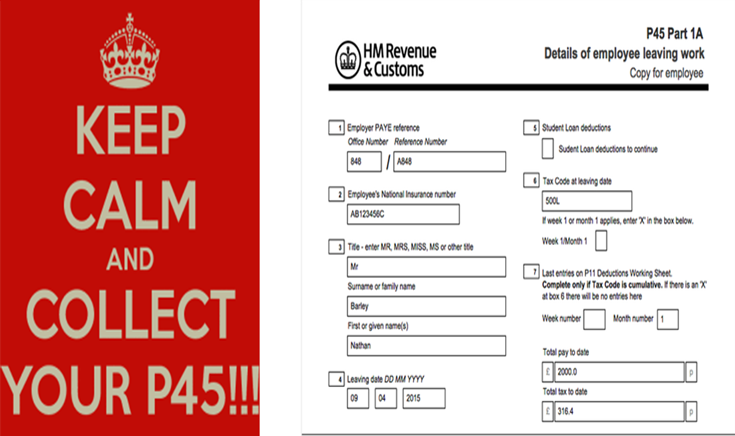![]()
![]()
In the UK, we have a very flexible labour market. Economists think this is a great thing as the fact that you can lose your job means people are more likely to hire you, given that they are not making a lifelong commitment. However, our flexible labour market comes with personal costs and requires quite a lot of personal resilience. Sebastiaan here reflects on what it’s been like for him to be made redundant and how you get up again and to use the English phrase that people who have come from abroad seem to love, ‘keep calm and carry on’.
To have or to not have a job? That is the question
Where I come from, there has never been a situation where you did not know or experienced the feeling of dread that you may lose your job as a drawn out and protracted thing causing untold anxiety and stress. You either had a job, or you know that you had messed up and would be likely to lose your job, or the business went bust! These were very clear parameters and everyone understood them. That also meant the you did everything in your power to get the job, hold on to it and not make the kind of mistakes that lost you your job.
Since I came to the UK, I have experienced redundancy twice in 8 years! It was awful and certainly the first time was devastatingly difficult as I had no knowledge of the concept. Also the fact that it was sprung on me as a surprise at 09:15 in the morning left me realing for the rest of the day. What compounded the feeling was that you were treated with a feeling that you had done something wrong. I now know that it was not personal, but when you’re marched to your desk and your laptop are taken away, stripped of your access cards, etc., it does feel very wrong! Your colleagues eyes followed you across the room, I thought wondering what you have done wrong until you can see that for some, the realisation dawned that this was a round of…, how do they put it, “.. restructuring the company and your role has been identified as being at risk”. G-d,how awful those words sound especially if you are the first one.
I did not know how to go home to my wife and share this news with her. The uncertainty was unbearable until the meeting that terminated my services with the company two week later. The worst was that you were placed on ‘garden leave’ and so, no contact with the firm, your colleagues and no way of really sharing the stress. I felt lost and it took me a while to realise I had no job and the market was in flux so getting back into work was a struggle. This lasted two years! Two of the longest years of my life.
I did eventually get back into work and soon the past faded as I was a useful citizen again, working, earning, spending and paying my taxes. This time however, it was different. I was contracting and therefore, in many ways working for myself. I felt free, economically well off and life was great. Then, globally, things started taking a turn for the worst – the lead up to the financial crisis of 2008.
I decided that it may be better to hedge my bets and went for a permanent role with a big media company, seeking safety in a permanent job. Two years later and the unexpected call at 08:30 to meet with the manager at 17:00 made me wonder a bit. The longer the day went on the more concerned I became that this was not normal and I feared the worst. I was made redundant again! I could not believe it and felt probably as devastated as the first time. The only difference was that I knew the process and did not take it personally. This time I was much older and the job market was indeed very difficult. I never did really get back into the job market. Although it was never clear, I suspect that employing and older worker was not on the cards of any employer with so many jobless graduates and young unemployed people. I was on my own and and in a bad space. What kept me going was my very supportive family and friends.
I never really recovered from that and decided that the only way was to create space for myself and do the things I like and loved to do. This lead to some very important lessons along the way and I am happy to share some of it here with you in this forum;
Firstly, if this should happen to you, don’t take it personally – it is just business rightly or wrongly! Make yourself aware of all the rules and especially your statutory rights regarding redundancy processes. Never sign anything unless you have spoken to a lawyer – which by the way, the employer is obliged to pay for but make sure you have agreed this before you contract one.
Sit down as soon as possible with your family, friends and support structures and map out what it means for you, what the impact is going to be and how you can best manage the whole situation.
If you have been fortunate and received at least the statutory redundancy payout, or a generous payout by the firm, please, please plan very carefully what you do with the money!
See the redundancy not only as a negative thing, but also possibly as an opportunity to change your life and that of the people immediately around you in a most positive way.
Realise that you are more than just your last job – you are a committed, passionate and diligent person that can achieve anything if you put your mind to it and enjoy the support of the people closest to you.
Hear are some resources that will help you clarify the rights you should enjoy and the obligations that the employer should fulfil
https://www.gov.uk/redundant-your-rights/overview
https://www.gov.uk/browse/working/redundancies-dismissals
http://www.theguardian.com/money/work-blog/2013/apr/30/redundancy-rights-uk-busting-myths
http://findlaw.co.uk/law/employment/redundancy_rights/redundancy-faqs.html
I hope this helps and wishing you well on your journey
Sebastiaan







